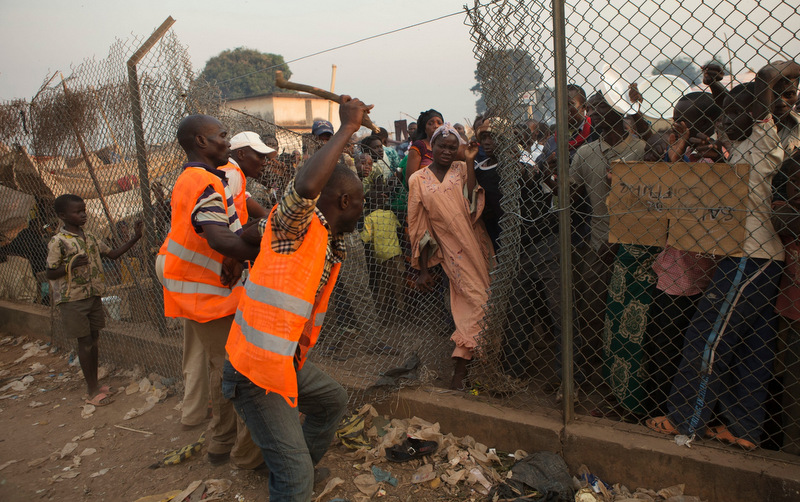
Chaotic sectarian violence has driven thousands out of the Central African Republic (CAR) and into neighboring Chad, and U.N. agencies say they are facing a challenging situation and emergency assistance is needed immediately.
The U.N. refugee agency UNHCR on Tuesday expressed alarm about the pending needs of CAR refugees in Chad. In CAR, there are just over 700,000 internally-displaced persons, while another 290,000 have fled to other countries, like Chad. More than half the country’s 4.6 million people are currently in need of humanitarian help, according to UNHCR.
The U.N.’s Office for the Coordination of Humanitarian Affairs, or OCHA, also said on Tuesday the situation was dire.
“These vulnerable people continue to suffer after surviving the carnage we are witnessing in CAR. We urgently need more resources to help them,” Thomas Gurtner, Humanitarian Coordinator inside Chad, said in a statement released by OCHA on Tuesday. “The world needs to take notice of this human tragedy.”
The upheaval in CAR began in December and sent people across the border in search of safety. Of those, only about 8,000 have been identified as new refugees, though more than 80,000 people have poured into Chad, OCHA reported. However, most of those people are Chadians who had relocated to CAR and lived there through several generations, OCHA said.
“We are appealing to our partners and the governments in these countries to help speed support to these populations, which although still relatively small in number are nonetheless in urgent need of assistance,” UNHCR spokesperson Melissa Fleming told journalists in Geneva, according to the UNHCR’s statement on Tuesday.
She referred to refugees not only in Chad, but also in CAR’s eastern neighbor, South Sudan, where another recent rebellion has led to a massive displacement of people to other countries.
The situations in CAR and South Sudan have also sent waves of displaced people into Cameroon and Ethiopia.
Most of the internally-displaced people and fleeing refugees from CAR entering Chad are women and children, who “fled their homes and villages with few or no belongings, seeking refuge from looting, murder and rape.”
In the OCHA report, Gurtner further stated, “Many are injured, traumatized, ill or malnourished. Almost 1,000 children are unaccompanied or separated from their family. They all need protection support and depend on provision of shelter, clean water, food distribution and health care to survive.”
Sheltering sites are unable to sustain adequate services for those who are in transit and have not been located into camps, OCHA said, and living conditions are dismal, with “little or no drinking water, overflowing latrines, and risks of outbreaks of diseases such as cholera.”
Nearly 31,000 more refugees from CAR have arrived in neighboring Cameroon this year. They face shortages in basic supplies of food, shelter and clean water, UNHCR reported.
“The UN and humanitarian partners have developed a six-month Emergency Response Plan appealing for $33 million to respond to the immediate needs of an estimated 150,000 people,” the OCHA statement said. “To date, only $6 million have been mobilized including $4.3 million from the United Nations Central Emergency Response Fund (CERF).”
The roots of the current inter-communal conflict — between Christians and Muslims — in CAR are complicated. In recent weeks, the situation has been exacerbated by individual and mob violence, as well as banditry.

